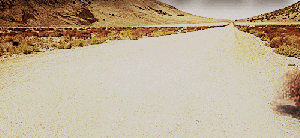'Fingerprints Of Previous Owners' (2017) is an exceptional book: diverse, credible characters; beautifully crafted descriptions and perfectly inflected dialogue, and an innovative structure work together to deliver a view of the legacy of slavery, its modern faces and the ways in which a community descended from slaves deal with their heritage and their present challenges.
This is not a polemic or a thinly-written anthem for the newly-woke. This is a novel that is firmly centred in the experiences, hopes, loves and frustrations of the people living on a small, formerly British, Caribbean island that once had a Plantation at its centre and the blood of slaves on its stones, and is now dominated by a foreign-owned, American-run holiday resort, built on the site of the plantation.
Most of the story is told from the point of view of Myrna, a young islander who spends her days supporting herself and her mother by working as a maid at the resort and spends her nights using her machete to cut her way into the thornbush-choked inland in search of all the things the older generations refuse to speak of.
The book opens with Event Management (white, brought in from off-island) at the resort curating the presentation of a fictional island and fictional islanders (black women, including Myrna, born on the island and employed as maids) to the tourists arriving by boat at the resort. The maids are required to dress in sheets so a white staffer, playing the role of Columbus, can deliver a narrative around 'Natives' welcoming Columbus the island hundreds of years ago. All the resort staff know that the islanders are descendants of African slaves and the original islanders who met Columbus were either killed or sent to die working in silver mines.
Here's Myrna, describes her work at the resort:
'My ID tag said nothing but "Maid" but it was also my job to be silent and visible only when the tourists wanted to see me. "At work2 meant not just a place or a time. A being. A not being.'
Here is her description of taking part in the charade for the tourists, where, dressed as 'natives' in white sheets, they offer the tourists beads in exchange for pennies:
'Christine and I ducked our heads to remove strands of plastic beads and handed them to the tourists in exchange for pennies. I could see in their eyes the expectation of gratitude. Pennies, not worth stooping to the ground for back at their homes, were transformed through some sort of island alchemy. The alchemy of poverty.'
I felt this to be astonishingly powerful. It made me squirm because I could image myself both as 'native' and tourist and would have hated being either.
As the novel progresses, we learn about Myrna's life, her family (father and brother now dead. Mother a retired school teacher who now scavenges a living), Myrna's self-imposed distance from the islanders around her and her obsession with the inland and what lies buried beneath the bush there.
Change in the story is driven by the arrival of a black American woman, her whiter-than-white husband and their son and their white blonde, college-age nanny as guests on the island. It is the first time that a black woman has been a guest and neither the brought-in staff nor the islanders know what to make of it. The woman brings with her an old book, dating back to the days of the plantation, that Myrna yearns to read and which will change everything.
Myrna's narrative is interspersed with chapters called 'Bench Stories' Each has an islander sitting on a bench, telling a story from his or her life. We don't know until the final chapters of the book who the stories are being told to or why but they're no less powerful for that. They're basically short stories with a common context and they are so intense. I'd buy the book for them alone.
There's one where a man explains why he walks the island wearing an old sock with a worn violin hanging on his back. It is human, so full of remembered love and pain and present courage that it hurts.
When I finally understood what the Bench Stories were, their power was increased immensely and they ended-up re-framing the whole novel.
'Fingerprints Of Previous Owners' was beautifully written but I found it very hard to take. When I read a chapter that finally gave a view (albeit an owner's view) of plantation life, I had to stop for a while before I could read more. The details of the way in which the slaves were treated, punished, used, sold are not new to me. I grew up on Merseyside. We were taught all about the slave trade and its cruelties. There's a museum to it in Liverpool's Albert Dock, but this book made the things I'd been told real in a way that they hadn't been before. It was the difference between reading a map and walking the land. It was the difference between thinking about things happening to 'them' and imagining things happening to 'us'.
As I sat and took this in: what it means, what the wealthy English did, for decades, to hundreds of thousands of people, I understood the outrage behind pulling down Colston's statue in Bristol.
The main narrative, while staying a very human, quietly told but emotionally rich story, showed me the ways in which modern Corporate Colonialism carries the ethics of slavery with it. The removal of dignity. Turning local people into second class citizens. The assertion of the rights of the owners over the needs of the people. And the so-taken-for-granted-we-don't-think-about-it racism. And none of it sounds like an exaggeration or a distortion. It's simply a stark exposition of a global corporate culture that treats people as things.
I liked the ending of the novel. No magic solutions were offered. No battle cry was raised. But there was change. The kind of change that comes from people talking to each other about their past and their present and doing what they can to claim and keeps their identity and their dignity.
I strongly recommend the audiobook version of 'Fingerprints Of Previous Owners'. All the narrators do a great job, especially in bringing the rhythms of the language to life.


 5
5
































